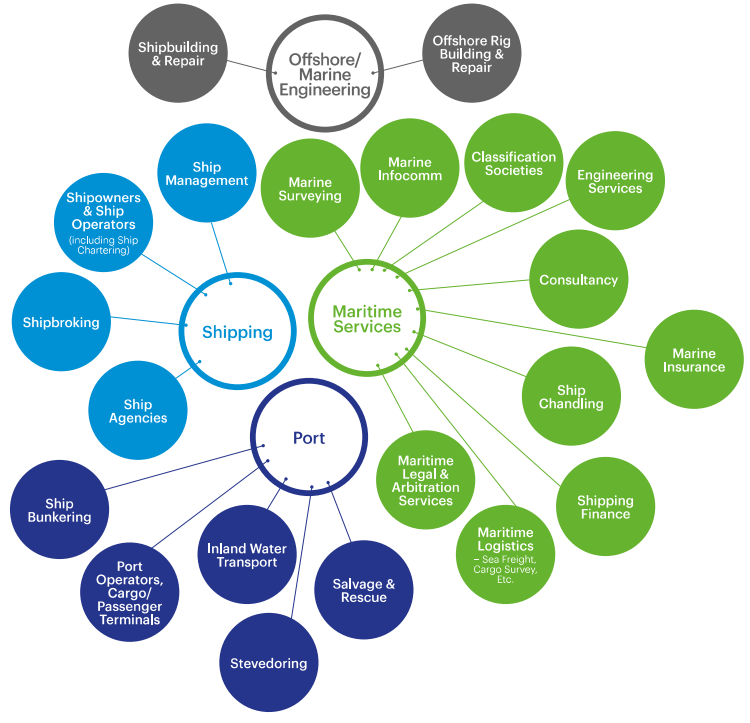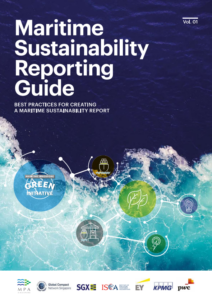The Maritime and Port Authority of Singapore (MPA), along with its partners Singapore Exchange Limited (SGX), Global Compact Network Singapore (GCNS), Institute of Singapore Chartered Accountants (ISCA), and sustainability consultants from Ernst & Young LLP, KPMG and PwC Singapore, have presented the first sector-specific Maritime Sustainability Reporting Guide on August 19.
The Guide aims to provide a practical framework, such as best practices for creating a maritime sustainability report, for both listed and non-listed maritime companies. The need for the Guide became clear through industry feedback regarding the increasing need for sustainability reporting guidelines, given that sustainability development practices bring various benefits to businesses.
As the report mentions, key features of features of the sustainability reporting requirements should include the following:
- Companies have to publish a sustainability report at least once a year, no later than 5 months after the end of each financial year;
- The report should describe the sustainability practices with reference to five key components: material ESG factors; policies, practices and performance; targets; sustainability report framework; and the Board statement;
- If a company excludes a primary component, it must describe what it does instead instead with reasons of doing so;
- The sustainability report will be based on the principles set out in the Guide providing an accurate and balanced view of the risks and opportunities in a concise manner;
- SGX does not prescribe any sustainability reporting framework. Companies should carefully select appropriate framework(s) for their business model and industry. Reports do not require external assurance, though companies which have been reporting for several years are recommended to do so.
Commenting on the report, Quah Ley Hoon, Chief Executive of MPA said:
The Guide attests to MPA’s efforts to champion sustainability reporting for the maritime industry and serves as a platform to reach out to the maritime community on sustainability. It is also aligned with MPA’s efforts to serve the needs of our customers, create stronger partnerships in the new world and build a more sustainable future for Singapore and the region
[smlsubform prepend=”GET THE SAFETY4SEA IN YOUR INBOX!” showname=false emailtxt=”” emailholder=”Enter your email address” showsubmit=true submittxt=”Submit” jsthanks=false thankyou=”Thank you for subscribing to our mailing list”]
In addition regarding trends in the maritime sector, the report said the challenges of the future demand significant change. This increases the need to address sustainability risks throughout maritime business’ operations. Namely, there are six main trends:
- Growing protectionism: Diverse geopolitical, economic, trade policy risks and structural shifts towards consolidations and alliances create uncertainty for maritime trade;
- Corporate governance: The increasing pace of change prompts investors to scrutinise the strength of business’ corporate governance;
- Energy sector developments: Companies may face volatility in fuel prices emerging from geopolitical risks. Increased policy and regulatory focus on reducing emissions and changing energy production towards renewables calls for businesses to assess ability to embrace decarbonisation;
- Environmental performance: Stakeholders are increasingly focusing on partnering with companies that have a sustainable business framework. Business owners need to consider choice of environmental compliance strategy carefully;
- Technological advancement: Increasing connectivity and digital innovation pose challenges as well as opportunities for rapid growth. Ability to leverage on technology is increasingly the differentiator;
- Climate change: Global warming may affect ocean currents, sea levels and increase climate risks. Supply chains could be affected, leading to price increases. Urgent government action may also cause dramatic changes to business.

Ms. Hoon added that the industry can do more on the sustainability front. First, the International Maritime Organization’s global regulation to tighten sulphur limits in ships’ fuel will be kicking in on 1 January 2020. Then there is the global target of reducing total annual GHG shipping emissions by at least 50% by 2050.
As for MPA itself, it is committed to the sustainability journey, as it has established the Maritime Singapore Green Initiative in 2011 with a pledge of S$100 million to promote green initiatives in the sector. The initiative supports greener ships, ports and companies in using cleaner fuels (such as LNG), reducing carbon emissions, and adopting greener technology.
You may see more information the PDF herebelow





























































